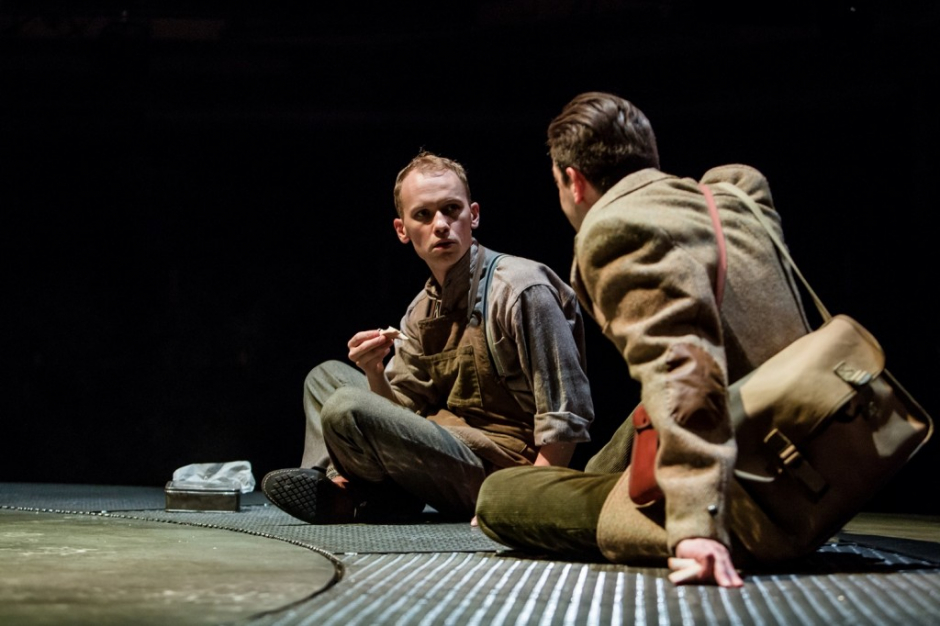The Night Watch, The Royal Exchange; May 19, 2016
(Photograph by Richard Davenport)
The Night Watch, in Sarah Waters’ 2006 novel at least, investigates a range of important societal injustices that existed in England around the time of the Second World War. The novel does a thorough job of documenting the issues faced by conscientious objectors, the difficulties and opportunities that the war presented to homosexual men and women, the state of prisons at the time, and even the disturbing trend of Christian Science during the era. And rather than becoming preachy and moralistic, as such message heavy literature can often be, the novel is entertaining and full of endearing characters. It also uses a clever and well-justified narrative technique, employing three sections which tell the story backwards.
This adaptation at the Royal Exchange comes close to being as impressive as the novel on a few occasions. There’s a scene in which Helen Giniver (Kelly Hotten) and Julia Standing (Lucy Briggs-Owen) argue over the former’s untrusting nature which is tense and intriguing while also hinting at the troubles inherent in hiding a homosexual love affair for fear of prosecution. When Viv Pearce (Thalissa Teixeira) collapses in the street after a botched abortion you can’t help but feel the pressures of the era. And the character of Duncan Pearce (Joe Jameson) is a triumph throughout, tragically representing the skewed fate of a pacifist homosexual in an era of masculine violence. Jameson is fantastic as Duncan, and the acting throughout the production deserves plaudits.
The play as a whole, though, is lacking a lot of what made the novel so powerful. Waters’ 2006 work is 506 pages long, giving the author plenty of time to delve deep into all of her chosen subject areas while also developing the characters in a meaningful manner. At just over two hours, the play doesn’t manage to do that. While some characters, such as Duncan and Viv, are as vibrant and real as they are in the book, others seem to disappear. While Kay Langrish (Jodie McNee) may seem like the main character in the production, most of what makes her so interesting and integral is rushed over. Her relationship with Helen becomes a footnote when it should be the narrative drive. Characters like Mr Mundy (Christopher Ettridge) and Mickey (Gbemisola Ikumelo) are completely side-lined, becoming shadows of their former selves.
Perhaps most damaging of all is the fact that the backwards narrative seems somewhat pointless in the play. While in the novel it provided an insight into how life’s flashpoints and accidental meetings can trigger shockwaves that will shape your life, particularly in times of war, this message didn’t seem to ring true in the play. Any newcomer to the story may have seen this strange method as only a gimmick. The ending was particularly affected by this. When written down the ending was an emotional outburst that revealed itself slowly and powerfully whereas here the conclusion felt rushed and almost irrelevant.
It wasn’t that this play wasn’t entertaining. It was. Hugely so, at times. And the acting and staging were as impressive as anything else in the Royal Exchange’s recent history. But when you take on a work of fiction that does so much so well, you have to at least come close to matching it. Maybe the play would have benefited from picking just one or two of the societal injustices that the novel did and focusing on them. Or maybe they could have trimmed the large cast. Or maybe to those who haven’t read the novel, none of this would seem like a problem. But it is hard to imagine anyone who has enjoyed the novel comparing the play in a favourable way.
Fran Slater

